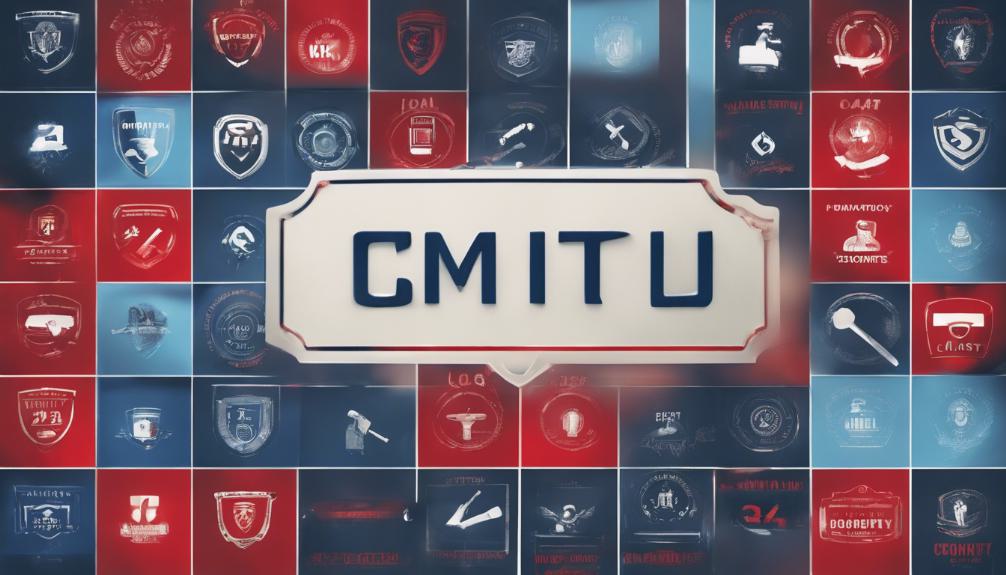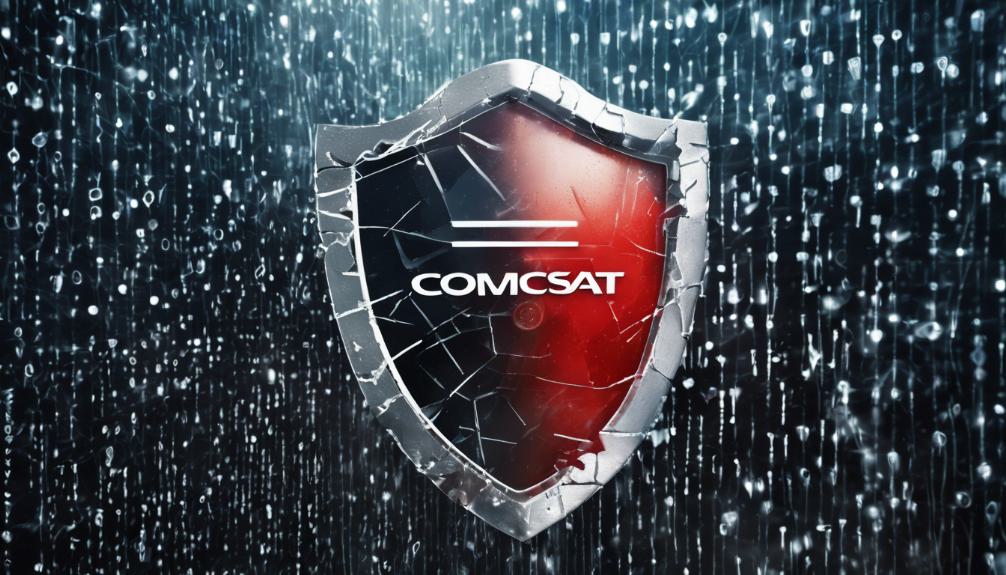Comcast, Citrix Face Lawsuit Over Massive Breach
The recent lawsuit filed against Comcast and Citrix, following a massive breach compromising the personal information of over 35 million Xfinity customers, raises critical questions about corporate cybersecurity responsibility and the protection of consumer data. The breach, attributed to vulnerabilities within Citrix systems, not only highlights the technical challenges faced in safeguarding sensitive information but also the legal and ethical implications for corporations in the digital age. As this case unfolds, it serves as a pivotal moment for examining the intersection of technology, law, and corporate accountability, inviting a broader conversation on the measures necessary to prevent future incidents of this magnitude.

Key Takeaways
- Comcast and Citrix are being sued for failing to protect over 35 million Xfinity customers' personal information.
- The lawsuit alleges inadequate security measures, encryption, and data management practices by both companies.
- Affected customers face significant risks of identity theft due to the breach, with their personal data likely sold on the dark web.
- The legal action includes a proposed Nationwide Class and New Jersey Subclass for individuals who received a breach notification letter.
Breach Overview

In late October, a cyberattack exploiting a vulnerability within Citrix's systems led to the unauthorized access of personal information for over 35 million Xfinity customers, marking a significant breach in Comcast's security infrastructure. This incident occurred between October 16 and 19, highlighting a critical period during which attackers had unfettered access to sensitive data. The breach underscores the challenges faced by large corporations in protecting customer information against sophisticated cyber threats. It also raises questions about the efficacy of existing security measures and the need for enhanced protocols to guard against similar vulnerabilities in the future. As details of the breach's root cause remain undisclosed, it emphasizes the importance of transparency and swift action in mitigating the impact of such security lapses.
Victims' Information Compromised

The cyberattack on Comcast's security infrastructure, exploiting a Citrix vulnerability, led to the compromise of personal information for over 35 million Xfinity customers, including sensitive details such as usernames, passwords, contact information, partial Social Security numbers, and dates of birth. This breach has not only exposed victims to potential identity theft but also placed a considerable burden on them to secure their digital and financial identities. The stolen data, highly valuable to cybercriminals, could be used in a myriad of fraudulent activities, ranging from unauthorized transactions to sophisticated phishing schemes. For the affected individuals, the repercussions of this breach may necessitate ongoing vigilance against identity theft, including monitoring of credit reports, changing online passwords, and possibly dealing with fraudulent charges for years to come.
Timeline of Events

Chronologically, the data breach unfolded over several days, starting from October 16 and concluding on October 19, marking a critical period for Comcast and Citrix security operations. This timeline reveals the rapid development of the situation, highlighting the urgency with which both companies had to respond. The breach began on October 16 when unidentified hackers exploited a vulnerability in Citrix systems, which was quickly identified as a significant threat to Comcast's customer data. Over the following days, the companies worked to assess the extent of the breach and secure their systems. By October 19, the immediate cybersecurity threat was contained, but the aftermath left both companies grappling with the implications of the breach and preparing for the legal and reputational challenges ahead.
Identity Theft Risks

Due to the breach, over 35 million Xfinity customers are now facing heightened risks of identity theft, as their sensitive personal information may already be circulating on the dark web. The leaked data, including usernames, passwords, names, contact details, partial Social Security numbers, and dates of birth, provides a veritable goldmine for cybercriminals. These individuals can use the stolen information for various fraudulent activities, from opening unauthorized accounts to committing financial fraud. The immediate aftermath of such breaches often sees a spike in targeted phishing attempts, as attackers exploit the compromised information to trick victims into divulging further details or accessing malicious websites. Consequently, affected customers must remain vigilant and undertake robust protective measures to safeguard their identities and financial wellbeing.
Legal Allegations

In a recent legal filing, Comcast and Citrix are accused of failing to implement adequate security measures to protect the personal identifiable information (PII) of millions of Xfinity customers, leading to a significant data breach. The lawsuit underscores a stark negligence in safeguarding sensitive data, exposing customers to substantial risks of identity theft and financial fraud. Plaintiffs argue that both corporations neglected essential cybersecurity protocols and due diligence, particularly in their vendor selection and data management practices. This oversight, as alleged, not only contravened industry standards but also demonstrated a disregard for the burgeoning threats within the digital landscape. The legal action seeks to hold Comcast and Citrix accountable for the breach, emphasizing the critical need for robust data protection strategies in an era increasingly marred by cyber vulnerabilities.
Comcast's Security Lapses

Building on the allegations of inadequate security measures, Comcast's specific lapses further underscore the severity of the breach and the risks to customer data. The lawsuit points to Comcast's failure to implement reasonable security procedures and encryption practices, alongside a lack of rigorous data deletion protocols. This negligence seemingly allowed hackers to exploit vulnerabilities, leading to the unauthorized access and theft of sensitive personal information of over 35 million Xfinity customers. The plaintiffs argue that these security shortcomings directly contributed to the breach's impact, exposing customers to the risks of identity theft and financial fraud. The absence of strict security measures and effective data protection strategies not only facilitated the cyberattack but also amplified the potential harm to affected individuals, highlighting a critical oversight in Comcast's cybersecurity framework.
Vendor Selection Critique

The lawsuit further scrutinizes Comcast and Citrix for their alleged negligence in thoroughly vetting IT vendors before entrusting them with sensitive customer data. This lack of due diligence is a critical focal point of the legal action, emphasizing the defendants' failure to implement robust security measures and oversight in their vendor selection process. Accusations of such negligence raise significant concerns about the protocols and criteria used to assess the security capabilities of third-party service providers. The implications suggest that both companies may have compromised customer privacy and security, potentially violating industry standards and regulatory requirements. This aspect of the case underscores the importance of rigorous vendor vetting as an integral component of cybersecurity strategy, highlighting a need for stricter evaluation processes to prevent future breaches.
Telecom Vulnerabilities

Recognizing the critical importance of vendor selection, it becomes evident that the telecommunications sector's inherent vulnerabilities further exacerbate the risks of data breaches. The sector's reliance on complex and interdependent digital infrastructures makes it uniquely susceptible to cyberattacks. This vulnerability is compounded by the widespread practice of outsourcing critical IT services, which introduces additional risk vectors through third-party vendors. In the case of Comcast and Citrix, the alleged failure to implement adequate security measures and conduct thorough due diligence on IT vendors has highlighted the significant cybersecurity risks facing the telecom industry. The breach not only underscores the sector's vulnerabilities but also emphasizes the critical need for robust cybersecurity protocols to protect sensitive customer information from unauthorized access and exploitation.
Lawsuit Class Details

In the aftermath of the significant data breach, a lawsuit filed in the U.S. District Court has delineated two proposed classes for affected Comcast and Citrix customers: a Nationwide Class and a New Jersey Subclass. The Nationwide Class seeks to represent all U.S. residents who received notification of being impacted by the breach, emphasizing the widespread nature of the cyberattack. Meanwhile, the New Jersey Subclass specifically targets those affected within the state, potentially due to particular legal nuances or additional protections under state law. This legal action underscores the seriousness of the breach and the broad scope of individuals potentially harmed, aiming to hold Comcast and Citrix accountable while seeking redress for the compromised personal information of millions.
Security Improvement Tips

To mitigate future risks of cyberattacks, experts recommend that companies like Comcast and Citrix enforce stricter security measures, including regular software updates and employee cybersecurity training. Implementing robust encryption methods for storing sensitive data and regular audits of security protocols can markedly decrease the likelihood of future breaches. Additionally, adopting a zero-trust security model, where no entity inside or outside the network is trusted by default, can further safeguard against unauthorized access. Companies should also engage in continuous monitoring for suspicious activities and have an incident response plan in place to quickly address potential threats. By taking these proactive steps, companies can enhance their security posture and better protect customer data from cybercriminals.
CVE-2023-4966 Exploitation

Understanding the technical vulnerabilities that lead to cyberattacks is fundamental for enhancing cybersecurity measures, including the exploitation of CVE-2023-4966 which played a significant role in the recent breach. CVE-2023-4966 is a critical security flaw that allowed unauthorized access to sensitive customer information, underlining the importance of timely vulnerability management and patching strategies. The exploitation of this vulnerability indicates a sophisticated level of cybercriminal activity, targeting the oversight in security protocols at Comcast and Citrix. The breach underscores the necessity for continuous monitoring and updating of security measures to protect against evolving cyber threats. This incident highlights the urgent need for corporations to assess their cybersecurity posture regularly and implement robust security frameworks to defend against such sophisticated attacks.
Mitigation Challenges

Addressing the aftermath of the Comcast and Citrix data breach presents significant mitigation challenges for both corporations and affected customers. For corporations, the immediate focus includes identifying the breach's full extent, securing compromised systems, and restoring trust among consumers and stakeholders. This involves extensive audits, updates to security protocols, and transparent communication with all affected parties. For customers, the path to mitigation is fraught with the need to monitor personal accounts, change passwords, and possibly engage in credit monitoring or identity theft protection services. The breach's scale complicates these efforts, as the sheer volume of affected individuals overwhelms customer service and support systems, delaying resolution and amplifying customer distress. Bridging these challenges requires a coordinated, all-encompassing approach that prioritizes security, transparency, and customer support.
Criminal Data Use

Following the Comcast and Citrix data breach, criminals may exploit the stolen personal information for various fraudulent activities. The exposure of usernames, passwords, contact details, partial Social Security numbers, and dates of birth creates a treasure trove for identity thieves. Such data can be sold on dark web marketplaces, leading to unauthorized transactions, new account openings, and targeted phishing schemes. The breach's scope amplifies the risk, affecting over 35 million Xfinity customers. Victims now face the challenging task of securing their digital footprint, monitoring for signs of identity theft, and possibly dealing with the financial and emotional impacts of fraudulent activities carried out in their names. Legal actions underscore the severity of the breach and the anticipated criminal exploitation of the stolen data.
Frequently Asked Questions
How Can Affected Xfinity Customers Monitor Their Credit and Identity Following the Data Breach?**
Affected Xfinity customers should vigilantly monitor their credit by regularly checking credit reports, setting up fraud alerts, and considering credit freezes. Utilizing identity monitoring services can also provide early warnings of potential identity theft activities.
What Specific Cybersecurity Measures Are Comcast and Citrix Implementing to Prevent Future Breaches?**
To address cybersecurity vulnerabilities, companies typically enhance their infrastructure with advanced threat detection systems, enforce stringent access controls, and implement regular security audits. Additionally, employee training on cybersecurity best practices is often intensified to prevent future incidents.
Are There Any Government Regulations or Oversight Actions Being Considered or Implemented in Response to This Breach?**
In response to significant data breaches, government bodies are evaluating stricter regulations and oversight mechanisms to enhance cybersecurity measures, aiming to prevent future incidents and guarantee the protection of personal information across various industries.
How Will This Data Breach Affect Comcast's Financial Performance and Stock Price in the Short and Long Term?**
The data breach could negatively impact the company's financial performance and stock price, especially in the short term, as investor confidence may wane. Long-term effects depend on the company's response and remediation efforts.
What Are the Psychological Impacts on Customers Knowing Their Personal Information Has Been Compromised, and What Support Is Available?**
The psychological impacts on customers after a data breach include anxiety, stress, and loss of trust. Support available includes credit monitoring, counseling, and guidance on securing personal information to mitigate potential identity theft risks.
Conclusion
To sum up, the cybersecurity breach affecting over 35 million Xfinity customers due to a vulnerability within Citrix systems highlights significant lapses in corporate data protection and IT vendor management. The resulting legal actions against Comcast and Citrix emphasize the critical responsibilities corporations hold in safeguarding personally identifiable information against unauthorized access. This incident serves as a pivotal reminder of the imperative need for robust security measures, diligent encryption practices, and stringent vendor due diligence to mitigate the risks of identity theft and guarantee the confidentiality of customer data.

This post has been generated by AI and was not reviewed by editors. This is Not legal advice. Please consult with an attorney.




